Virgin Orbit earns AS9100 Certification
Thursday, 18 August 2022 03:40 The Performance Review Institute (PRI) Registrar recently certified Virgin Orbit (Nasdaq: VORB) as having met stringent international standards. This achievement promotes Virgin Orbit's ongoing commitment to satisfying stakeholders, and the Company's dedication to continual improvement of its quality management system.
The globally recognized AS9100 standard builds upon the ISO 9000 family
The Performance Review Institute (PRI) Registrar recently certified Virgin Orbit (Nasdaq: VORB) as having met stringent international standards. This achievement promotes Virgin Orbit's ongoing commitment to satisfying stakeholders, and the Company's dedication to continual improvement of its quality management system.
The globally recognized AS9100 standard builds upon the ISO 9000 family Sols 3562-3563: Adventures Over Sand
Thursday, 18 August 2022 03:40 Curiosity is continuing the journey through Paraitepuy Pass. The image above shows why it is going to take some time to traverse through this area. Here the navigation cameras snapped a photo of Curiosity's wheel tracks over a sand ripple. The rover was designed to overcome terrain like this, but the rover planners still want to develop the drive paths very carefully as we drive through these ro
Curiosity is continuing the journey through Paraitepuy Pass. The image above shows why it is going to take some time to traverse through this area. Here the navigation cameras snapped a photo of Curiosity's wheel tracks over a sand ripple. The rover was designed to overcome terrain like this, but the rover planners still want to develop the drive paths very carefully as we drive through these ro Dust grains older than our sun found in Asteroid Ryugu samples
Thursday, 18 August 2022 03:40 Microscopic grains of ancient material that predate our Sun's birth were found in samples returned from the asteroid Ryugu by the Hayabusa2 mission, according to new work from an international team led by Carnegie's Jens Barosch and Larry Nittler and published in The Astrophysical Journal Letters.
Named after a Japanese folktale, Ryugu is a near-Earth object shaped kind of like a spinning
Microscopic grains of ancient material that predate our Sun's birth were found in samples returned from the asteroid Ryugu by the Hayabusa2 mission, according to new work from an international team led by Carnegie's Jens Barosch and Larry Nittler and published in The Astrophysical Journal Letters.
Named after a Japanese folktale, Ryugu is a near-Earth object shaped kind of like a spinning Series Futuristic Space Themed Centers
Thursday, 18 August 2022 03:40 Space Hero, Lava and One Digital Entertainment has announced plans for the creation of Space Village, a series of 10 iconic futuristic space-inspired landmarks in different locations around the world. Space Village is designed by Alexander Rieck from German architectural firm LAVA. Each Space Village will feature a large space center and a glimpse of forward-looking technology that will stimulat
Space Hero, Lava and One Digital Entertainment has announced plans for the creation of Space Village, a series of 10 iconic futuristic space-inspired landmarks in different locations around the world. Space Village is designed by Alexander Rieck from German architectural firm LAVA. Each Space Village will feature a large space center and a glimpse of forward-looking technology that will stimulat Underwater snow gives clues about Europa's icy shell
Thursday, 18 August 2022 03:40 Below Europa's thick icy crust is a massive, global ocean where the snow floats upwards onto inverted ice peaks and submerged ravines. The bizarre underwater snow is known to occur below ice shelves on Earth, but a new study shows that the same is likely true for Jupiter's moon, where it may play a role in building its ice shell.
The underwater snow is much purer than other kinds of ice, w
Below Europa's thick icy crust is a massive, global ocean where the snow floats upwards onto inverted ice peaks and submerged ravines. The bizarre underwater snow is known to occur below ice shelves on Earth, but a new study shows that the same is likely true for Jupiter's moon, where it may play a role in building its ice shell.
The underwater snow is much purer than other kinds of ice, w Thailand's first comsat by mu Space Corp passes GISTDA tests
Thursday, 18 August 2022 03:40 mu Space and Advance Technology Company Limited is an aerospace manufacturer in Southeast Asia that also produces aerospace components and provides satellite communication services. The company develops satellites for communication purposes and is almost entirely made by professional in-house engineers.
From the 9th-11th of March 2022, mu Space tested their satellite parts with Geo-Informa
mu Space and Advance Technology Company Limited is an aerospace manufacturer in Southeast Asia that also produces aerospace components and provides satellite communication services. The company develops satellites for communication purposes and is almost entirely made by professional in-house engineers.
From the 9th-11th of March 2022, mu Space tested their satellite parts with Geo-Informa SLS arrives at the pad for Artemis 1 launch
Wednesday, 17 August 2022 21:33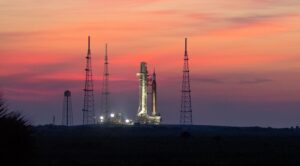
NASA’s Space Launch System made its third trip to the launch pad Aug. 17, this time with the intent of lifting by early next month.
The post SLS arrives at the pad for Artemis 1 launch appeared first on SpaceNews.
Commercial geospatial technologies that detect GPS disruptions to be tested in military exercises
Wednesday, 17 August 2022 21:29
U.S. military and allied forces in upcoming exercises will put to the test commercial technologies that could help detect GPS jamming or other activities that disrupt satellite-based navigation.
The post Commercial geospatial technologies that detect GPS disruptions to be tested in military exercises appeared first on SpaceNews.
Russian spacewalk cut short by bad battery in cosmonaut suit
Wednesday, 17 August 2022 18:30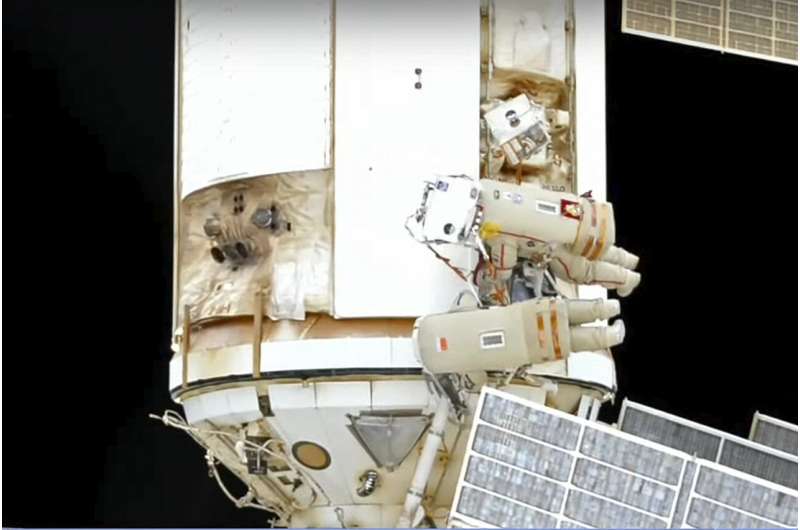
NASA's moon rocket moved to launch pad for 1st test flight
Wednesday, 17 August 2022 18:29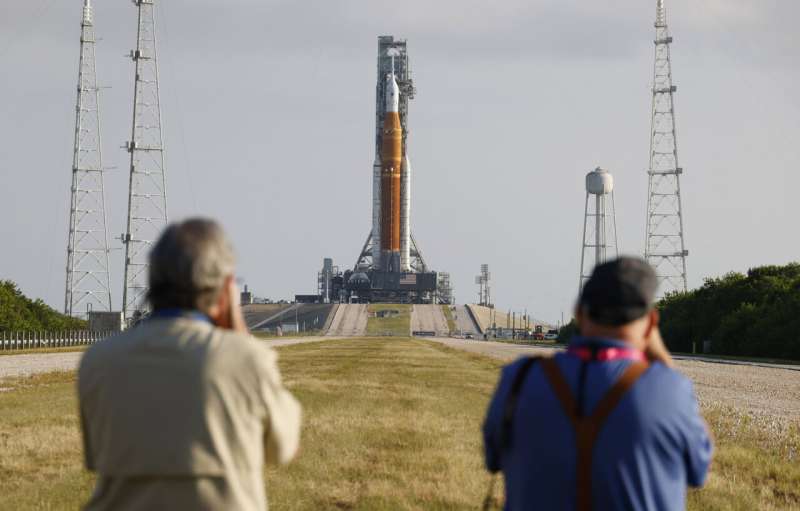
NASA's new moon rocket arrived at the launch pad Wednesday ahead of its debut flight in less than two weeks.
The 322-foot (98-meter) rocket emerged from its mammoth hangar late Tuesday night, drawing crowds of Kennedy Space Center workers, many of whom were not yet born when NASA sent astronauts to the moon a half-century ago.
Facilitating the development of LEO mega constellations
Wednesday, 17 August 2022 16:36
The rapid development of Low Earth Orbit (LEO) mega constellations has significantly contributed to several aspects of human scientific progress, such as communication, navigation, and remote sensing. However, unrestrained deployment of constellations has also strained orbital resources and increased spacecraft congestion in LEO, which seriously affects the safety of in-orbit operations of many space assets.
For the long-term and sustainable development of space activities in LEO regions, space environment stability must be maintained using more rational surveillance and governance mechanisms. In a review paper recently published in Space: Science & Technology, Jingrui Zhang from School of Aerospace Engineering, Beijing Institute of Technology, analyzed the research gap and facilitated the development of LEO mega constellations.
First of all, the author reviewed the current developments of typical LEO mega constellations, including Starlink, OneWeb, Iridium Next, Globalstar, and Flock. Taking SpaceX's Starlink as an example, it aims to build a LEO constellation containing 42,000 satellites to achieve global coverage, high-speed, large-capacity, and low-latency space-based global communication system. Starlink has shown excellent performance in related fields, such as international aviation and ocean transportation. Moreover, Starlink can be constructed as a powerful command and communication network and has already been an important symbol of the weaponization of outer space in the United States.
Test chamber for NASA's new cosmic mapmaker makes dramatic entrance
Wednesday, 17 August 2022 15:32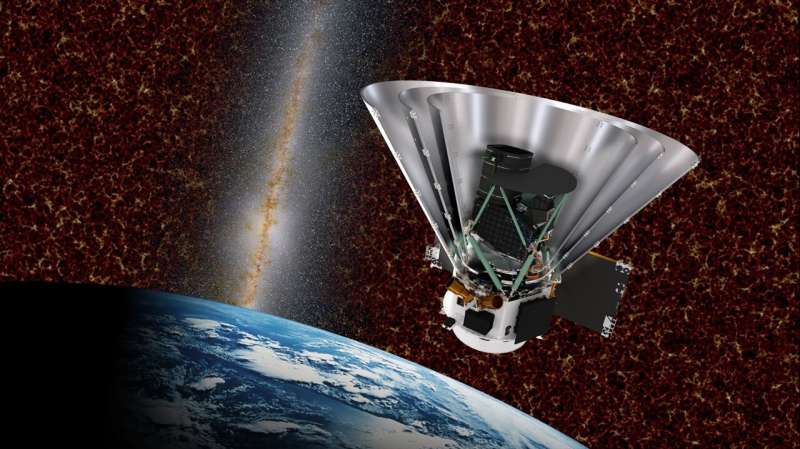
After three years of design and construction, a monthlong boat ride across the Pacific Ocean, and a lift from a 30-ton crane, the customized test chamber for NASA's upcoming SPHEREx mission has finally reached its destination at Caltech's Cahill Center for Astronomy and Astrophysics in Pasadena.
Set to launch no earlier than June 2024, SPHEREx (short for Spectro-Photometer for the History of the Universe, Epoch of Reionization and Ices Explorer) will make a unique map of the cosmos that will contain hundreds of millions of objects, including stars, galaxies, star-forming regions, and other cosmic wonders.
The mission to make longer-lasting space drugs
Wednesday, 17 August 2022 14:13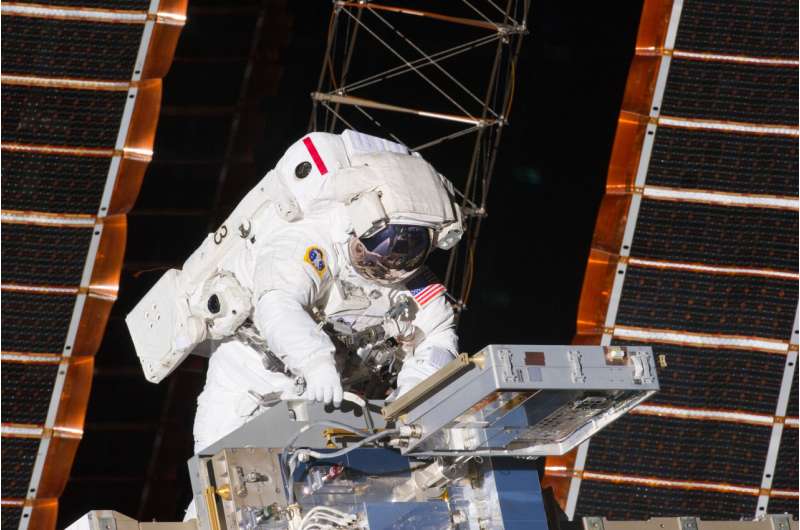
How do we make medicine last the extreme conditions of space exploration?
How would you manage a headache while flying to Mars?
You might try the Earth remedy of taking a painkiller. But on a 2-year round trip, how long would they last? And could you trust them?
Martian migraine
Access to medical supplies is a major concern for astronauts. Sleep issues, pain, congestion and allergies are all common complaints from those on extra-terrestrial missions.
The use of medication by American crewmembers on the International Space Station (ISS) was monitored between 2002 and 2012. And according to the data, astronauts used sleep tablets 10 times more often than earthlings. They also used ibuprofen for pain stemming from space flight pressure changes, higher carbon dioxide levels and joint issues.
Unfortunately, the longer the space flight, the higher the chances of experiencing acute illness. Common health problems for astronauts include a weakened immune system, bone decalcification and low blood pressure.
On Earth, most medicines expire within a year.
Researchers propose plasma-based method of extracting oxygen on Mars
Wednesday, 17 August 2022 12:57 A group of scientists have developed a plasma-based method of producing and separating oxygen on Mars, according to a study published Thursday.
The team of researchers from the University of Lisbon, the Massachusetts Institute of Technology, Sorbonne University, Eindhoven University of Technology and the Dutch Institute for Fundamental Energy Research shared a method that can harness an
A group of scientists have developed a plasma-based method of producing and separating oxygen on Mars, according to a study published Thursday.
The team of researchers from the University of Lisbon, the Massachusetts Institute of Technology, Sorbonne University, Eindhoven University of Technology and the Dutch Institute for Fundamental Energy Research shared a method that can harness an Watch Live: NASA Artemis 1 rocket begins pre-launch rollout
Wednesday, 17 August 2022 12:57 NASA began rolling out its Space Launch System rocket to the launch pad at Kennedy Space Center in Florida on Tuesday night, ahead of its premiere flight later this month.
The uncrewed test flight is part of the plan to return man to the moon.
NASA live-streamed the rollout of the Artemis I Moon rocket, the largest ever built by NASA, on Launch Pad 39B. The movement was expected
NASA began rolling out its Space Launch System rocket to the launch pad at Kennedy Space Center in Florida on Tuesday night, ahead of its premiere flight later this month.
The uncrewed test flight is part of the plan to return man to the moon.
NASA live-streamed the rollout of the Artemis I Moon rocket, the largest ever built by NASA, on Launch Pad 39B. The movement was expected 